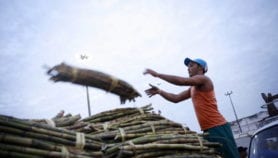By: Wagdy Sawahel
Send to a friend
The details you provide on this page will not be used to send unsolicited email, and will not be sold to a 3rd party. See privacy policy.
Researchers have found a way of boosting the yield of a major crop by stopping its seedpods from bursting open.
Indian mustard (Brassica juncea) is the most important oilseed crop in India after groundnut. It is grown largely to produce cooking oil from the seeds. However, because the seedpods open naturally to disperse their seeds at different times, part of each harvest is lost.
This ‘pod shatter’ also makes it difficult for farmers to rotate crops because prematurely released seeds can germinate and become weeds.
Researchers, led by Lars Østergaard from the University of California at San Diego, United States, created genetically modified (GM) Indian mustard whose seedpods will not open naturally. They did this by inserting a gene from a related plant called Arabidopsis.
Their research was published online by Plant Biotechnology Journal on 16 August
Østergaard says that controlling seedpod opening could have the added benefit of reducing the chance of the inserted genes moving to non-GM crops or wild species. He adds that the same approach could be used in other crops that disperse their seeds in a similar way, such as soybean and peas.
Indian mustard can tolerate heat and drought. Because of this, Australian crop breeders are crossing it with its close relative Brassica napus (canola or oilseed rape) — which produces a better quality oil — to create new varieties.
Østergaard says that combining the new drought resistant varieties with his teams’ plants that do not shatter their seeds could yield crops that are well suited for the warmer climates of most developing countries.
Link to abstract of paper in Plant Biotechnology Journal
Reference:
Plant Biotechnology Journal doi: 10.1111/j.1467-7652.2005.00156.x (2005)












